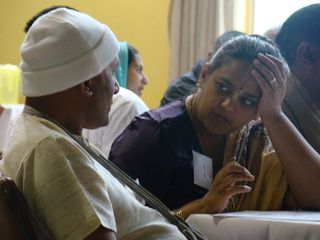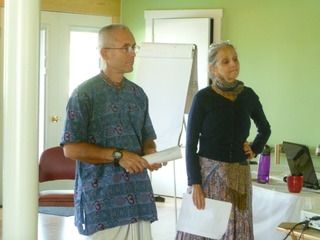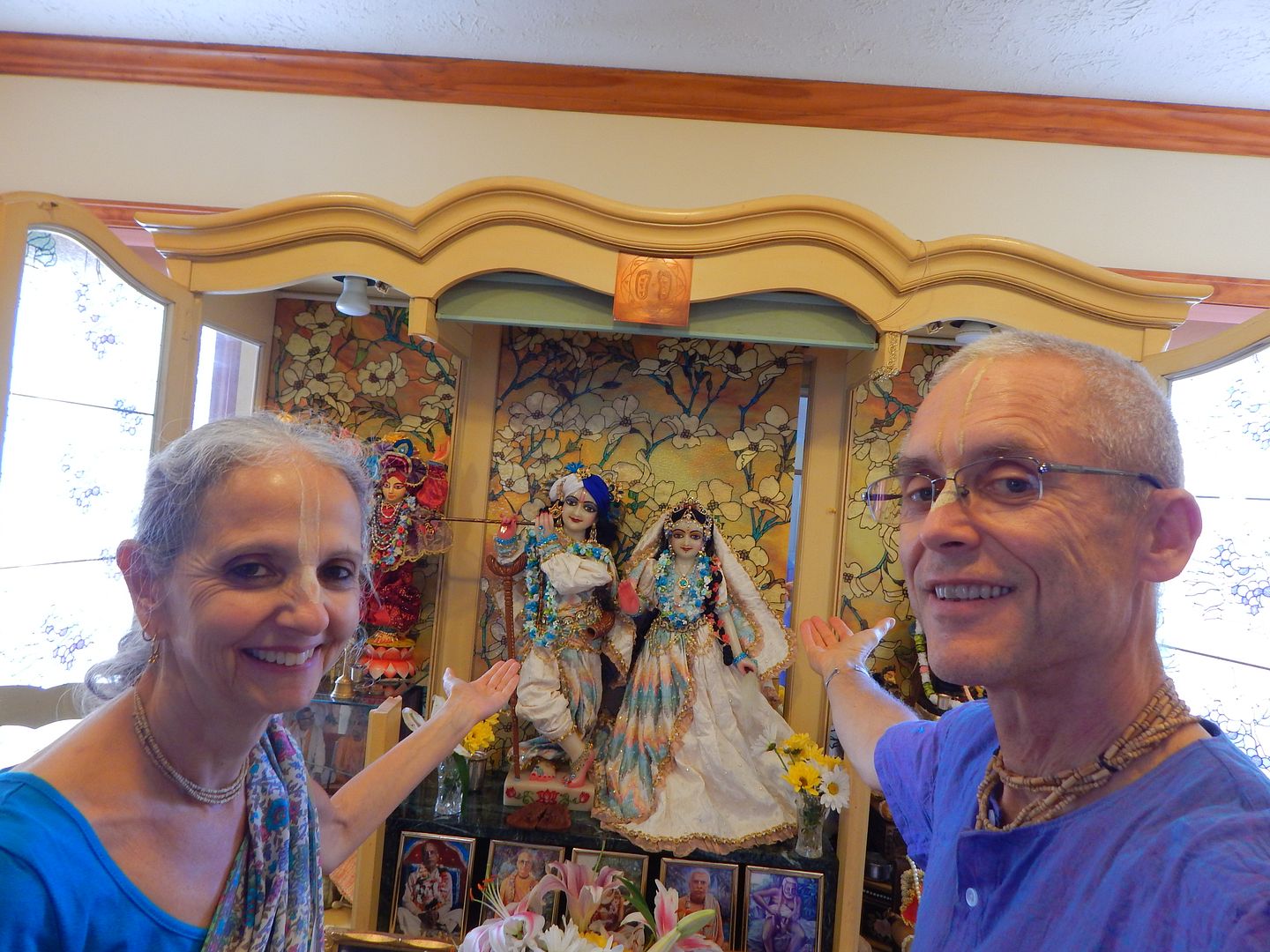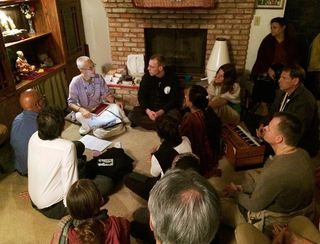THE IMPORTANCE OF COMBINING “HORIZONTAL” GROWTH WITH “VERTICAL,” OR SPIRITUAL, GROWTH: Much of what I write about could be called “horizontal” growth, or tools, thinking processes, angles of vision, or making the mind our friend, that while in of themselves are not counted as bhakti, they're essential for it, and to me, inseparable for remaining, or becoming, an enthusiastic devotee, and happy human being—the spiritual and material sides of life. Horizontal growth means in the broadest sense being a balanced person strongly influenced by the mode of goodness, where our physical, emotional, mental, and intellectual requirements are naturally addressed, but in such a way as to be made favorable for bhakti practices.
To put this in devotee lingo, we could say this is within the purpose of the socio-religious system of Varnasrama, but to me, without the baggage. Without getting into the details, formally designating a person as this or that varna appears counter-productive in today’s world. However, we can serve its purpose by helping devotees discover and deal with their life issues, become balanced and happy human beings, and find an occupation, and possibly a mate, that compliments their natural proclivities, all within the context of spiritual advancement.
Many devotees struggle from not addressing their past or personal life issues which bleed into their spiritual lives and can make it difficult to avoid making aparadhas or offenses to others and in fully absorbing themselves in sadhana, which is the ultimate healing method. In such a condition we have a divided mind and our out of integrity and in conflict with ourselves.
Some say to me, “Just chant Hare Krishna!”
Sure, if you can chant purely without distraction, and are happy in the process—go for it. I am all for that, and see the purpose of personal growth work as total absorption in the spiritual life.

Simply stated, If your dealings with other people don’t trigger your past hurts with the same kinds of relationship problems continuing to reoccur, but instead your dealings with others are generally full of kindness, compassion, and love, and you are happy and making spiritual progress, then you don’t need anything else.
In my experience, without focused, and often, assisted introspection and personal growth work, this is extremely rare. Regardless of how balanced we are, most devotees can benefit from assistance in understanding themselves, because we all have our blind spots and many have unhealthy ways of relating to at least some types of persons. Compassionate and wise feedback are an essential part of spiritual advancement.
We see sometimes devotees who have been practicing strict sadhana for 30 or 40 years who feel stuck in their lives, feel something is missing, and are not happy people. They may have being doing everything right in terms of sadhana, but have never engaged in serious introspection to sort out their past and really understand themselves.
We can do harm to ourselves by using our spiritual life as an excuse to not embrace our humanity, and understand what we need to do as our life’s work. This is why every temple and community of Vaishnavas needs to address both the personal growth and spiritual needs of its members, and is why we need an army of professional devotee therapists and lay counselors who know when to refer out. This is my bias based on my own personal growth work and in working with devotees.

WHAT WE LOVE CAN REVEAL OUR OCCUPATIONAL DIRECTION and PEOPLE WHO LOVE SOMETHING ARE THE BEST TEACHERS ABOUT IT: This is another simple, profound truth, and yet for me, and perhaps others, naming what we love can be a challenge. Personally, growing up, I came to see love as a meaningless word. First of all, I was so emotionally shut down, or out of touch with myself as a defense to a violent home, I never felt the emotion, and only officially, occasionally used it.
Then, when my mother—from my perspective—left me with my alcoholic father, when I visited her she would say she “loved me.” I questioned what kind of loving person would abandon me. After talking up the path of bhakti at 19 and living as a single monk, I also imbibed a further view that love was only for Krishna, and anything else was lust.
So in a sense, love became like a four letter, or curse, word, reinforcing my previous negative association with it. It represented attachment and bodily consciousness, and we “weren’t the body,” so it was to be avoided. We didn’t want to be sentimentalists! As it turns out this is a very shallow understanding of bhakti, and is an incomplete view our teaching more akin to the impersonalist path of jnana which stressed renunciation and detachment for their own sake.
However, since I was with other inexperienced persons, many of whom were recovering from the acute distress of living a materialistic life, and from relationships which were not centered on God, it was a natural response to the lifestyle we were trying to transcend. Many perspectives or practices may be good for a while, but not for all time, and some are our life, like hearing and chanting about Krishna!
After I first moved out of the temple in search of my material self, healing from my past, and finding my calling, I used to listen to motivational speakers. I greatly appreciated their teachings, but I got to the point of trying to apply them to my life, and I came up short. I would hear, “Live with passion,” from Tony Robbins, and I would draw a blank. This was partially due to my past as I outlined above, but also my particular mellow, laidback personality. Thus it has taken me a long time and much personal growth work and sadhana to really understand what I “love” to do.

Now, love can be used very cheaply too, like “I love ice cream,” but if we can go deeper in personal maturity we can uncover what moves us to action, what we are stimulated to think about, or what we're enthused (i.e. love) to do with our time. To me this is essential in uncovering our gifts and life work. There is a book with the title, “Do What You Love, The Money will Follow,” which expands on this. Generally we will only excel at what we love to do, and this is one of the many secrets of a fulfilling life, that, and doing our work as a devotional offering.
My hope is that you will spend some time with this idea, especially if you are searching to better understand yourself and what you are meant to do as a way to serve God, or Krishna. What we love is also our “fun.” So to me, my fun is sharing this with you and ideally seeing how you apply it and are transformed in the process.


Comments